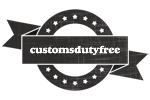The Republic of Iceland is a Nordic island country in the North Atlantic Ocean. It has a population of 332,529 and an area of 103,000 km2 (40,000 sq mi), making it the most sparsely populated country in Europe. The capitalThe net worth of a business, including assets, cash, propert... and largest city is Reykjavik. Reykjavik and the surrounding areas in the south west of the country are home to over two-thirds of the population. Iceland is volcanically and geologically active. The interior consists of a plateau characterised by sand and lava fields, mountains and glaciers, while many glacial rivers flow to the sea through the lowlands. Iceland is warmed by the Gulf Stream and has a temperate climate, despite a high latitude just outside the Arctic Circle. Its high latitude and marine influence still keeps summers chilly, with most of the archipelago having a tundra climate.
Iceland is a member of the European Free TradeThe buying and selling or exchange of goods and services. Th... Association (EFTA). Iceland has a mixed economyA country's economic system which has both private and state... with high levels of free tradeThe buying and selling or exchange of goods and services. Th... and government intervention. However, government consumption is less than other Nordic countries. Geothermal power is the primary source of home and industrial energy in Iceland.
Facts: Republic of Iceland, CapitalThe net worth of a business, including assets, cash, propert...: Reykjavik, Population: 328,000, Area: 103,000 sq km (39,769 sq miles), Major language: Icelandic, Major religion: Christianity, Life expectancy: 80 years (men), 84 years (women), Currency krona.
Important Details
- Country ISO3: ISL
- Country Code: 352
- Income Group: Europe & Central Asia
- Lending Category: High income
- Region: Not Available
- Currency Unit:Icelandic krona
- WTO Member: YES
- TradeThe buying and selling or exchange of goods and services. Th... organisations: EFTA, OECD, WTO
- world rank: 20
- Regional Ranking: 10th in Europe

